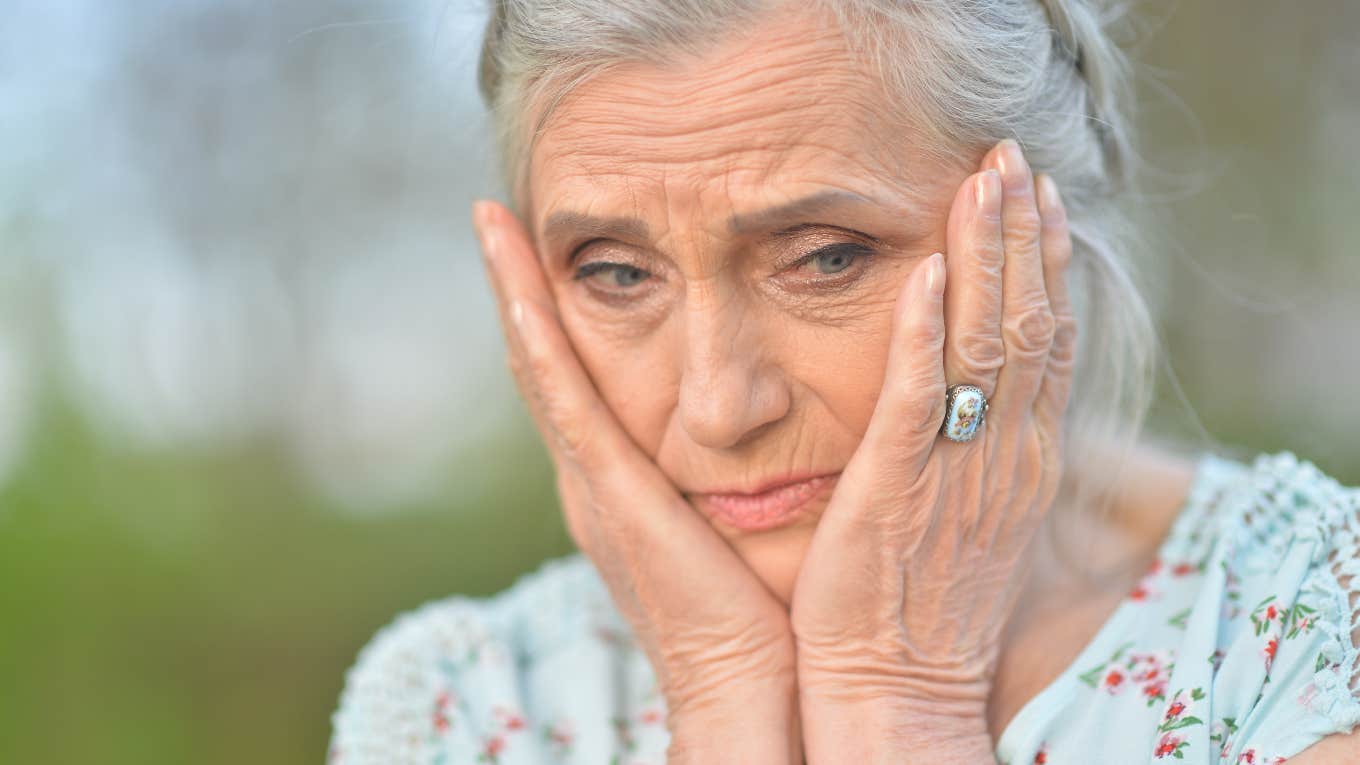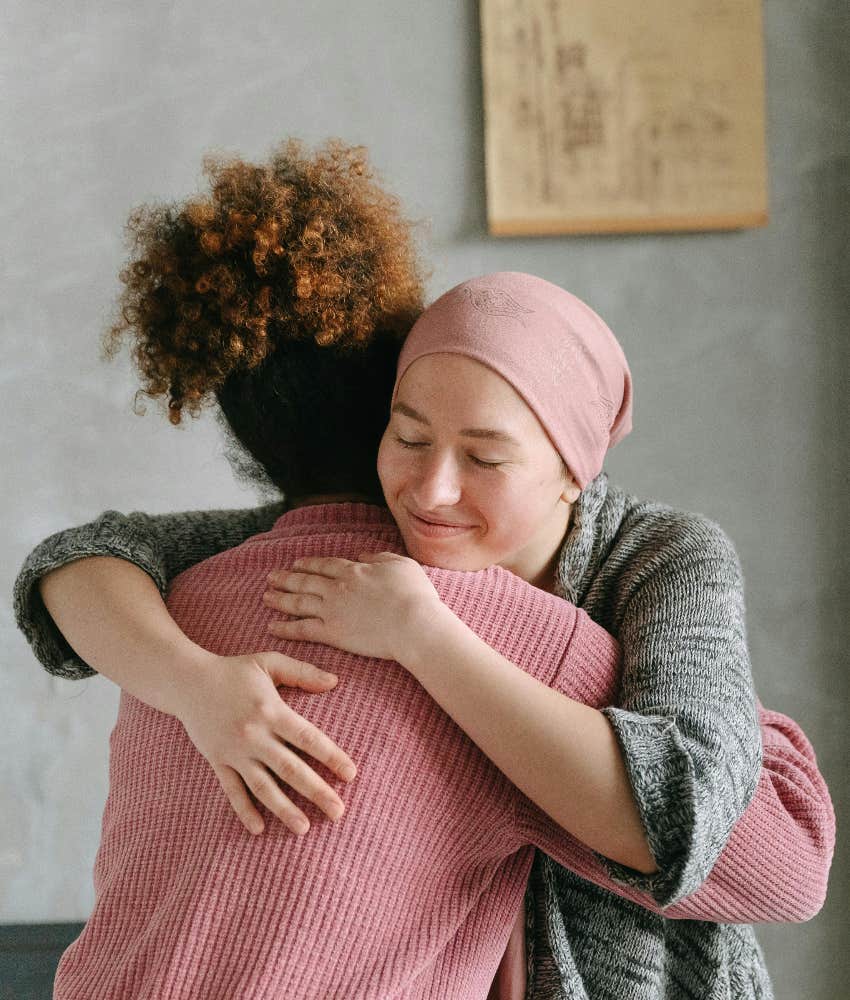Grandma Diagnosed With Terminal Cancer Asks If It's ‘Selfish’ To Decline Treatment After Daughter Refuses To Let Her See Her Grandkids
She has the right to make her own healthcare decisions without her kids pressuring her.
 Ruslan Huzau | Shutterstock
Ruslan Huzau | Shutterstock No one wants to lose those closest to them under any circumstances. However, things can be even more difficult when views do not align when it comes to medical care and treatment. When emotions are running so high, it’s easy for tempers to flare.
One grandmother experienced this firsthand when she received a terminal cancer diagnosis. Her wish was to let the illness run its course instead of putting herself through more discomfort to prolong her life. However, her children didn’t agree with her on this front, and her daughter even refused to let her see her grandkids anymore.
A woman wouldn’t let her mom see her grandkids because she refused to pursue cancer treatment.
A grandmother who was worried she might be acting selfishly wrote into Slate’s parenting advice column “Care and Feeding” for help. She shared her heartbreaking situation with the advice columnist, Michelle Herman, and readers. “I recently received a terminal cancer diagnosis,” she said.
 absolut | Shutterstock
absolut | Shutterstock
“Instead of enduring chemo to extend my life for only a few months, I have decided to forgo treatment and let the inevitable happen,” she continued. While she was resolute in her decision, her children couldn’t fathom it. “My (adult) children refuse to accept this decision,” she shared.
Things have escalated so much that the woman’s daughter has cut off her contact with her grandchildren. “My daughter will not bring her children to visit me, saying it will ‘traumatize’ them to see me like this, and the time she spends with me is devoted to telling me how selfish I’m being,” she said. Unfortunately, her son’s behavior isn’t much better.
Despite the hurt her children are feeling, this woman is not backing down from the choice she has made. “I understand that this is difficult for them, but treatment would not save my life, as they seem to have the fantasy it would,” she reasoned. “I am already in so much pain — I just want to spend what time I have left with my children and grandchildren.”
The advice columnist reminded this grandma that this situation really was ‘your life, your decision.’
Herman began her response by offering her apologies, and by addressing the obvious. “I don’t believe you’re being ‘selfish’ by declining to lengthen your life by a matter of months (which, yes, with chemo would be very hard months),” she wrote.
“Assuming that you have discussed this decision with doctors you trust, and that your outlook is based on an accurate assessment of your situation, I think the thing to do is to try again to (fully, carefully, patiently) explain it to your shell-shocked children,” she continued. She recommended taking the time to fully recognize how this is affecting the children themselves and treat them with compassion.
“If they won’t listen to your reasoning, write them letters,” she suggested. “Tell them as many times as necessary. I believe they’ll come round.”
Medical care is a personal decision that the family doesn't have to like, but they must respect.
Certified hospice and palliative care nurse Beth Cavenaugh, RN, BSN, believes the final decision about a patient’s care belongs to the patient themselves. If loved ones have a difficult time accepting that, it’s their responsibility to work through why.
 Thirdman | Pexels
Thirdman | Pexels
“Is it your own stuff you’re dealing with? Is it an inability to accept death? Take an inward look and ask yourself, ‘Why is this so hard for me?’ Because it is hard, and it can be a tough thing to get on board with,” Cavenaugh stated.
Ultimately, as much as loved ones may care, they don’t have the right to interfere with a patient’s care decisions. Instead, it’s better to employ some self-reflection to determine why they are struggling so much with those choices. This grandma certainly shouldn’t be made to feel selfish because she chose to do what’s best for her.
At the same time, Herman was right in telling this grandma to keep trying with her kids. The reason they are reacting this way is because they are sad and scared. They don't want to lose their mom. She needs to be open and honest with them and perhaps even take them to a doctor's appointment so they can better understand her choice. Grief can make people react harshly when all they are really trying to say is "Please fight because we don't want to lose you."
Mary-Faith Martinez is a writer with a bachelor’s degree in English and Journalism who covers news, psychology, lifestyle, and human interest topics.

